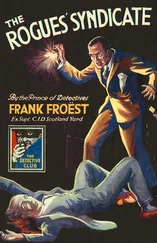FROM THEN ON time ceased to exist.
As they made their way east, leaving Bylot Island in their wake, the ice became rougher and the runners took even more of a battering. Cold winds had left thin layers of ice on the surface of the puddles, which tinkled beneath them like shattering glass. Anawak spotted a narrow lead and called to the driver, but the man had already seen it – he turned as the skidoo raced over the ice, pulling the qamutik behind it, and grinned.
'So you haven't forgotten everything,' laughed Akesuk.
Anawak hesitated. Then he joined in. He felt ridiculously proud to have spotted a crack in the ice.
The afternoon light conjured sun dogs in the sky. That was what the Inuit called the peculiar apparitions that formed on either side of the sun, coloured luminous spots created by the refraction of the sun's rays through tiny frozen crystals in the air. Pack ice had stacked up in the distance, forming steep, jagged harriers. Then smooth, open water appeared on their right. A seal rose up, glanced at them and dived. After a while its head popped back up to stare at them inquisitively. They left the water behind them and headed for a larger pool, which seemed to Anawak to stretch forever, until he realised that it wasn't a pool but the open ocean. They had reached the floe-edge.
Before long they saw a collection of tents ahead. The procession halted. There were greetings all round – some people knew each other already. The group at the camp came from Pond Inlet and Igloolik. They'd caught a narwhal earlier and had carved it up, leaving the carcass further to the east near the floe-edge, in the direction that Anawak's expedition was heading. Pieces of its skin were passed round, and the talk turned to the hunt. Two men joined them, hunters returning from the floe-edge on skidoos, on their way home. Their qamutiks were loaded with hunting kayaks and the bodies of two seals they'd shot the day before. One man said the seals would follow the retreating ice, arriving at their feeding and breeding grounds earlier than usual. He swung his Winchester 5.6 as he talked, and advised them to be careful. The slogan on his cap read, 'Work is only for people who don't know how to hunt.' Anawak asked if he'd noticed anything odd about the whales, whether they'd seemed aggressive or had attacked. Apparently they hadn't. Suddenly the whole camp flocked to listen. Everyone was au fait with the reports and knew every last fact about the phenomena that had terrified the world. As far as Anawak could tell, though, the Arctic had been spared.
As evening drew in, they left the camp.
The two hunters headed back to Pond Inlet, while Anawak's party continued in the direction of the floe-edge. After a while they passed the remains of the dead narwhal. Flocks of birds were squabbling over the meat. They carried on, trying to put as much distance as possible between themselves and the carcass, but when they finally stopped it was still within sight. The guides set up camp thirty metres or so from the floe-edge. Boxes were unloaded from the sleds, and the radio mast was erected so that they could keep in contact with the outside world. In no time the guides had pitched five tents, four for the travellers and a kitchen tent, all with wooden flooring and camping mats. Three sheets of plywood daubed with white paint served as a toilet, housing a bucket lined with a blue plastic bag and topped with a scratched enamel seat.
'About time too,' beamed Akesuk.
While the others finished setting up camp, he was the first to disappear into the honey-pot, as the Inuit nicknamed it. The guides detached the skidoos from the sleds and proposed a race. Anawak was shown how to manoeuvre one, and soon they were shooting past each other on the shimmering ice. Anawak's heart lightened. He loved being there.
The races continued until one of the men from Igloolik was declared the overall winner, and their thoughts turned to food. Mary-Ann shooed them out of the kitchen tent, so they stood outside, leaning up against the sleds and huddling together to fend off the cold. A young woman started to tell an Inuit story of the kind that was told and retold but never the same way twice. Anawak could remember such stories lasting for days.
It was getting on for midnight when Mary-Ann served dinner – grilled Arctic char, caribou chops with rice, roasted Eskimo potatoes, and to wash it all down, litres of tea. The kitchen tent was supposed to accommodate everyone, but it was unquestionably too small – Akesuk was furious, and cursed the man from whom he'd hired it- so they took their plates outside and balanced them on the sleds and boxes.
One after another, the travellers retired to bed. Then at half past one in the morning, Akesuk reached into the depths of his bag and brought out a bottle of champagne. He winked slyly at Anawak. Mary-Ann turned up her nose and said goodnight, so Anawak and his uncle were left alone, with the exception of the man on bear-watch, who was standing on a mound of pack ice with a rifle at his feet.
'In that case we'll have to drink it by ourselves,' said Akesuk.
'I don't drink.'
'Of course.' Akesuk looked at the bottle mournfully. 'Are you sure? I packed it specially. I was waiting for the right occasion. And the occasion… Well, you've come home, so I thought…'
'I don't want to lose control, Iji.'
'Control of what? Of your life or of this moment?' He stowed the bottle away. 'No problem. There'll be other occasions. Maybe we'll catch something big. Who knows? We might get a beluga or a walrus. How about a walk before we turn in?'
'Good idea.'
They strolled down to the floe-edge. Anawak let his uncle take the lead. The old man had a better sense of where the ice was stable and where it might break. The Inuit had hundreds of words for every possible kind of snow or ice, but not one that meant 'snow' or 'ice' in general. Right now they were walking on elastic ice. Salt separated from water as it froze, so icebergs were formed entirely of fresh water. Pack ice and drift ice contained traces of salt – the faster the water froze, the greater the salinity of the ice. That increased its elasticity, which was good in winter because it prevented it cracking too easily, but problematic in spring when it heightened the risk of break-up. The mere shock of falling into the cold water was enough to kill someone, but the greater danger was of being swept beneath the ice.
They found a spot near the floe-edge and leaned up against a block of pack ice. The silvery sea stretched in front of them. Anawak spotted the steel-blue bodies of graylings flitting just beneath the surface. For a while they let the minutes tick by, and suddenly, as though Nature had decided to reward them for their patience, two spiral-ridged tusks rose out of the water like a pair of crossed swords. A couple of male narwhal appeared a few metres from the floe-edge. Their rounded mottled heads came into view, then the dark grey bodies dived down. In less than fifteen minutes they'd be back. That was their rhythm.
Anawak watched in fascination. Narwhal were hardly ever seen off the coast of Vancouver Island. For years they'd been threatened with extinction. Their tusks, which were actually modified teeth, were pure ivory, condemning them to centuries of slaughter. They were still on the list of endangered species, but the narwhal population in Nunavut and Greenland had crept back up to ten thousand.
The ice made soft creaking and groaning noises as the water rose and fell. Birds were still squawking around the remains of the dead narwhal. A gentle light bathed the mountains and glaciers of Bylot Island, casting shadows on the frozen sea. The sun hugged the horizon, pale and icy.
'You asked whether I'd missed this,' said Anawak.
Akesuk stayed silent.
'I hated it, Iji. I hated it, and I despised it. You wanted an answer. Now you know.'
Читать дальше












